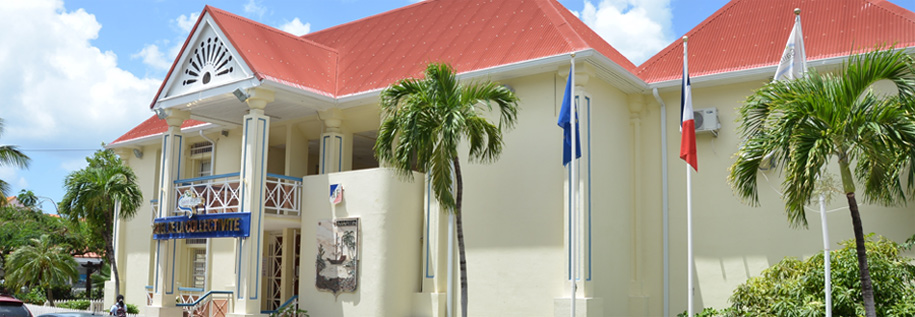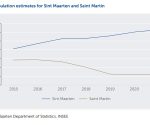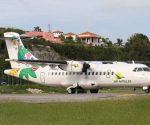‘Identify the challenges shared by the whole island’

~ Saint Martin advocates joint approach ~
Philipsburg – Whereas St. Maarten has done little to secure funding from the European Union, the State and Collectivité of Saint Martin successfully applied for grants, amounting to tens of millions of euros. With the support of the EU, Saint Martin intends to base the revival of its economy on a rationale of sustainable development, and wants St Maarten to join forces.
Saint Martin receives grants via Guadeloupe. More than 876 million euros in European funds have been allocated to Guadeloupe over the 2007-2013 time period. In 2014 the Guadeloupe Regional Council became the managing authority for European Programmes. The 2014-2020 programme amounts to a total of 608 million euros.
One of Europe’s nine Outermost Regions (ORs), Saint Martin has received grants from the European Regional Development Fund (ERDF), the European Social Fund (ESF), the European Agricultural Fund for Rural Development (EAFRD) and the European Fisheries Fund (EFF). Through the ERDF OP 2007-2013 and the Contrat de Développement 2011-2013 the sum of 16,37 million euros became available for the construction of a complex of secondary schools in Grand Case for 900 pupils. The 2014-2020 programme will help 10.000 households gain access to broadband internet and 14.000 households obtain better waste water treatment.
The ERDF co-funded the ecosite in Grandes Cayes for the separate processing of old cars, scrap iron, plastics, cardboard, glass and electric waste (€1,1 million) and the establishment of an enterprise for the processing of potentially infectious medical waste, in order to comply with French and EU regulations. (€0,2 million) On the Dutch side all types of waste continue to be transported to the landfill dumpsite. Only since January of this year the Sint Maarten Medical Center has a contract with the Royal Funeral Home & Crematorium in Sucker Garden for the processing of materials from the operating room.
Within the EU, Sint Maarten is one of the overseas territories with the status of associated countries and is therefore eligible for certain European funds and partnerships. Saint Martin, as stated in its territorial programme 2014-2020, advocates a cross-border approach: “The goal should be to identify the challenges shared by the whole island and the possible areas of cooperation, as well as to develop the instruments that will enable joint projects to be implemented successfully.”
When its first ESF-ERDF programme for the 2014-2020 period was being prepared, Saint-Martin developed, for its side of the island, a ‘smart specialization strategy’ (S3), which identified three strategically important areas: smart and sustainable utilities, construction and urban planning; ICT information society; managing and capitalising on natural and cultural assets. Saint Martin suggested to St. Maarten it would be useful to create a joint working group on the themes of innovation and competitiveness for the island as a whole. “It is now necessary to institutionalize this cooperation and to sustain it over the long term by taking advantage of the opportunities offered by the first territorial cooperation programme, co-financed by ERDF.”
Saint Martin also sought cooperation in the region. Petitioning the Organisation of Eastern Caribbean States (OECS), the island territory was given the status of Observer to participate in the Organisation’s activities with no voting privilege. The OECS authority recently approved the transition of Saint Martin from observer status to associate membership by the end of December 2019.
###
Related articles:
EU faces challenge of funding water treatment plant
European Commission waiting on St Maarten to present plan
Action needed to secure EDF-funding
Sint Maarten signed the OCTA Oceans Declaration and Roadmap
Governments of the Dutch, French side working on Doppler Radar Weather Station
Execution report finances first half 2017: Financing Dutch Quarter sewage project in peril























